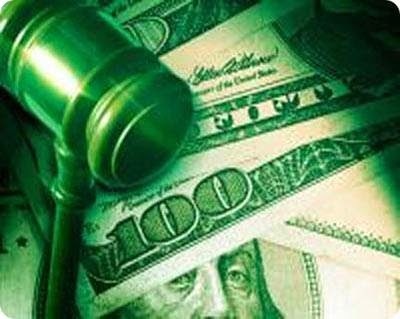Two Very Different Alternatives to America's Bad Economic Status Quo
 It seems that nearly everyone is unhappy with America's economic status quo.
It seems that nearly everyone is unhappy with America's economic status quo. The Haves, especially around tax time, are sad at how little they seem to get for paying the lion's share of taxes, and the massive effort required to pay one's taxes--filing all but the simplest returns is extremely complicated.
The Have-Nots, an ever growing percentage of the population, are struggling ever more just to make ends meet.
As I've written ad nauseam, the recovery is a government-and media-perpetrated myth. Yes, a few very rich people and companies are recovering but most people are not.
I'm of two completely different minds on what to do. One is a lightly regulated small-government version of capitalism. The other is socialism plus a method of selecting leaders that would make socialism more likely to succeed.
My preferred flavor of capitalismGovernment does most things badly: slowly, inefficiently, and "invests" in schemes that the private sector rejects as bad investments and usually turn out to be. What pop to mind are ethanol, Solyndra, and endless "promising" social programs that fail, not to mention $85 hammers and bridges to nowhere.
The government seems to forget that it's our money they're toying with and they have a responsibility to spend it wisely. And government, riddled with sinecures and the near-impossibility of getting fired from most government jobs, ensures we get terrible value for the enormous amount of taxes we pay: not just federal, state, and local income tax, but sales tax, alcohol tax, tire excise tax, property tax, tolls, user fees, plus usurious fines for traffic violations, for example, I paid $85 for a parking ticket. The penalty for driving in the car pool lane is $481 dollars. The punishment should fit the crime. Rather, tickets are merely one of many hidden taxes.
I'd slash the size of government while retaining a safety net for the poor. Hard work would not be enough to make people rise out of poverty. Most are poor heavily because of bad luck in who their parents were and where they grew up. It feels appropriate to have some redistribution from people who won in the genetic lottery to those who lost.
So I'd fund free group-housing and food for the poor---If dorm living and eating is good enough for Harvard students, it's good enough for those who aren't working. I'd also provide basic health care but not the same level of care available to provided to people who pay for health care.
I'd dramatically scale back most agencies, including defense. We can't reduce risk to zero and the fortune we spend on defense doesn't sufficiently increase our chances of remaining safe. I'd cut education spending--We fund absurdly large bureaucracies that create mountains of regulations, micromanage, and require huge sums for schools to comply with regulations that, net, ironically impede learning. Truly.
I'd similarly review all government spending with an eye toward cost-effectiveness.That would put a fortune back into working and middle-class people's pockets. I believe they would far more wisely spend the money than the government can.
My preferred flavor of socialismCapitalism creates too many losers. While a small percentage get wealthy, millions, unable to compete even for moderate-level jobs, must struggle to maintain even a meager existence.
Socialism, which heavily taxes middle and upper incomers to provide a broad, cradle to grave support system is worthy of consideration. And indeed, America is rapidly moving toward a more socialist economy with ObamaCare, paid Family Leave, etc., etc.
A brand new way to select our elected officials leadersThe problem is that socialism expands government and is likely to result in even more poorly spent taxpayer money.
The core problem in my view is in how we select our leaders. The people who run for office are the types willing to continually press the flesh and say what's needed to win. Politicians are not the pool from which the wisest stewards of our tax dollars would come.
Even if campaigns were brief and 100% publicly funded, you still have the problem of an electorate too subject to the influence of commercials, sound bites, and slick politician speeches.
Instead, I propose that our government officials be selected using passive criteria, like a stock index fund picks stocks. For example, our legislators might consist of the most newly retired of the nation's 10 largest nonprofits, a randomly selected CEO of the S&P Midcap 400, the Police Officer of America's Cop of the Year, the Teacher of the Year, the most award-winning scientist who finished her or his Ph.D. in the last decade, plus five random citizens.
Those legislators would vote to select the heads of executive branches: the president, state governors, and mayors.
While the impact of better leaders would help all economic systems, it would particularly benefit a socialist government, because it is so large.
Making it practical
You protest, "But the incumbent politicians would never allow it--the foxes are guarding the hen house." My approach would be to get the media to urge voters to vote against candidates that oppose a fairer system for selecting our government's leaders.
Your thoughts? I feel insufficiently knowledgeable to recommend either of these economic reforms wholeheartedly. They merely represent my best thoughts and I welcome your thoughts on the subject.
Published on March 30, 2015 18:56
No comments have been added yet.
Marty Nemko's Blog
- Marty Nemko's profile
- 4 followers
Marty Nemko isn't a Goodreads Author
(yet),
but they
do have a blog,
so here are some recent posts imported from
their feed.



